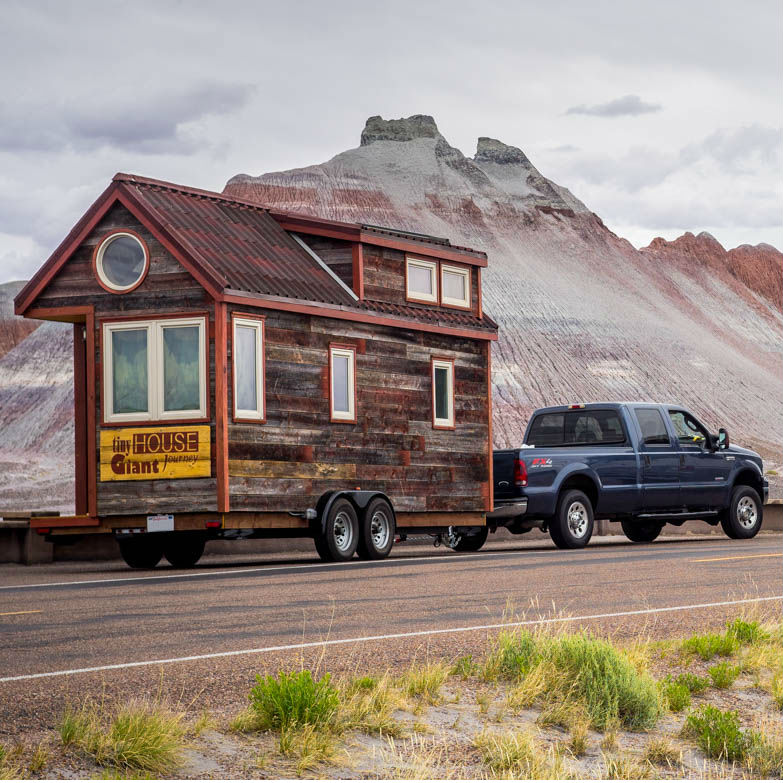
London West, UK
Something strange and new is happening in America. Two of its opposing cultural mythologies-the American Dream and the Great American Road Trip-have morphed into a bizarre new hybrid lifestyle with its own unique identity. The unlikely force that brought them together? The tiny home movement.
The American Dream is based on the instinct to settle down and make a family. It goes something like this: anyone disciplined and hardworking enough can earn their own home. It brings to mind stereotypes of wholesome suburban life. Think green lawns, white picket fences and Leave It to Beaver. By American standards, it is an older worldview, one that served recent arrivals forging a new life.
In stark contrast, the Great American Road Trip is based on a craving for unattached adventure and the unknown. Its poster child is the iconic beat author Jack Kerouac, a man not known for his self control or dependability. This newer concept made sense to a different generation born with and bored of the house with the white picket fence.
Like the stereotypes they bring to mind, these conflicting visions are becoming outdated.
In the 70's and 80's a handful of highly publicized, gruesome murders pretty much put an end to hitch hiking, the original road trip method. Though road trips are still common, people rarely travel today with the same sense of wild abandon as the characters in Kerouac's On the Road. The American Dream is also not what it used to be. A stagnating job market combined with merciless housing prices has cause an unwelcome recalibration. Expectations have been grudgingly lowered. Many have reacted with despair and political fury.
But not all. Mobile tiny homes are allowing others to live a new, modern dream that embodies elements of both lifestyles.
Tiny homes provide many of the same feelings associated with owning a regular home. In that sense they are quite different from RV's and other conventional mobile homes or trailers. Firstly, they look like houses, not vehicles. Of course not all tiny houses are built on wheels, but many are. The wheels are easily hidden and they can be convincingly integrated into a setting. When constructed by their inhabitants, which they often are, they impart the same sense of investment one gets from doing home improvement projects.
And of course they are mobile. That benefit speaks for itself. Imagine, the comforts of home combined with the thrill of travel. Not exactly a nightmare.
Story Type: News
